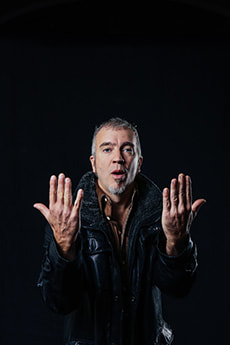|
All the t’s are crossed and the i’s are dotted! We are thrilled to announce our Friday night headliner: JJ Grey & Mofro! Here is some information about the band and their latest album: From the days of playing greasy local juke joints to headlining major festivals, JJ Grey remains an unfettered, blissful performer, singing with a blue-collared spirit over the bone-deep grooves of his compositions. His presence before an audience is something startling and immediate, at times a funk rave-up, other times a sort of mass-absolution for the mortal weaknesses that make him and his audience human. When you see JJ Grey and his band Mofro live—and you truly, absolutely must—the man is fearless.
“The tops of the trees are even worse,” he laughs, “say closer to 70, maybe even 80 feet. I’m not phobic about heights, but I don’t think anyone’s crazy about getting up in a bucket and swinging all around. I wanted to fertilize this year but didn’t get a chance. This February I will, about two tons—to feed the trees.”
When he isn’t touring, Grey exerts his prodigious energies on the family land, a former chicken-farm that was run by his maternal grandmother and grandfather. The farm boasts a recording studio, a warehouse that doubles as Grey’s gym, an open-air barn, and of course those 50-odd pecan trees that occasionally require Grey to go airborne with his sprayer. For devoted listeners, there is something fitting, even affirmative in Grey’s commitment to the land of his north Florida home. The farms and eddying swamps of his youth are as much a part of Grey’s music as the Louisiana swamp-blues tradition, or the singer’s collection of old Stax records. As a boy, Grey was drawn to country-rockers, including Jerry Reed, and to Otis Redding and the other luminaries of Memphis soul; Run-D.M.C., meanwhile, played on repeat in the parking lot of his high school (note the hip-hop inflections on “A Night to Remember”). Merging these traditions, and working with a blue-collar ethic that brooked no bullshit, Grey began touring as Mofro in the late ’90s, with backbeats that crossed Steve Cropper with George Clinton and a lyrical directness that made his debut LP Blackwater (2001) a calling-card among roots-rock aficionados. Soon, he was expanding his tours beyond America and the U.K., playing ever-larger clubs and eventually massive festivals, as his fan base grew from a modest group of loyal initiates into something resembling a national coalition.
0 Comments
|
NewsArchives
November 2017
Categories |

 RSS Feed
RSS Feed